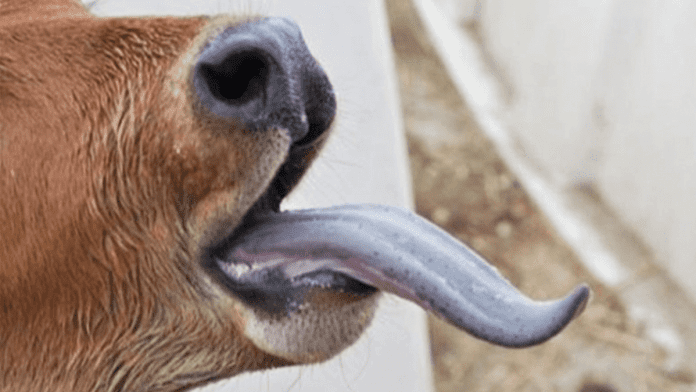News in Brief:
– Farmers in Essex and the South East face a significant risk of bluetongue disease spreading from Europe, with a new strain identified in England.
– Despite no evidence of the disease in British midges, experts warn of the potential threat, urging farmers to stay vigilant and adopt evidence-based tactics for mitigation.
Farmers in Essex and the South East of England face a mounting threat as experts warn of a significant risk of bluetongue disease spreading from Europe. This warning comes in the wake of an outbreak last autumn in England, with a new strain of the disease potentially being carried by midges from northern Europe.
Bluetongue is a disease affecting various livestock, including cattle and sheep. Its symptoms range from a swollen, blue tongue to fever and reduced milk yield, with severe cases even resulting in death. Though it doesn’t affect human health or food safety, its impact on local farmers can be devastating.
While there’s no evidence of bluetongue circulating among midges in Britain, the risk lies in the insects being carried by the wind from mainland Europe. The emergence of a new strain, BTV-3, first identified in the Netherlands, has further heightened concerns. Since its identification in England, there have been 126 reported cases across four counties.
Local impact of bluetongue disease and precautions
Counties along the south and east coasts, including Essex, are at higher risk due to their proximity to northern Europe. With biting midges most active between April and November, farmers are urged to stay vigilant and monitor their livestock closely. However, there’s currently no vaccine available in the UK for the new strain, although efforts are underway elsewhere.
Farmers are cautioned against misinformation, especially concerning the control of midges and the disease. Practical measures such as increasing air movement to deter midges are recommended, though they may not completely eliminate the risk.
In light of the escalating threat, farmers are advised to remain aware, cautious, and adopt evidence-based tactics to mitigate the risk of bluetongue transmission. Collaboration between government agencies, veterinary professionals, and the farming community is crucial in tackling this pressing issue.



